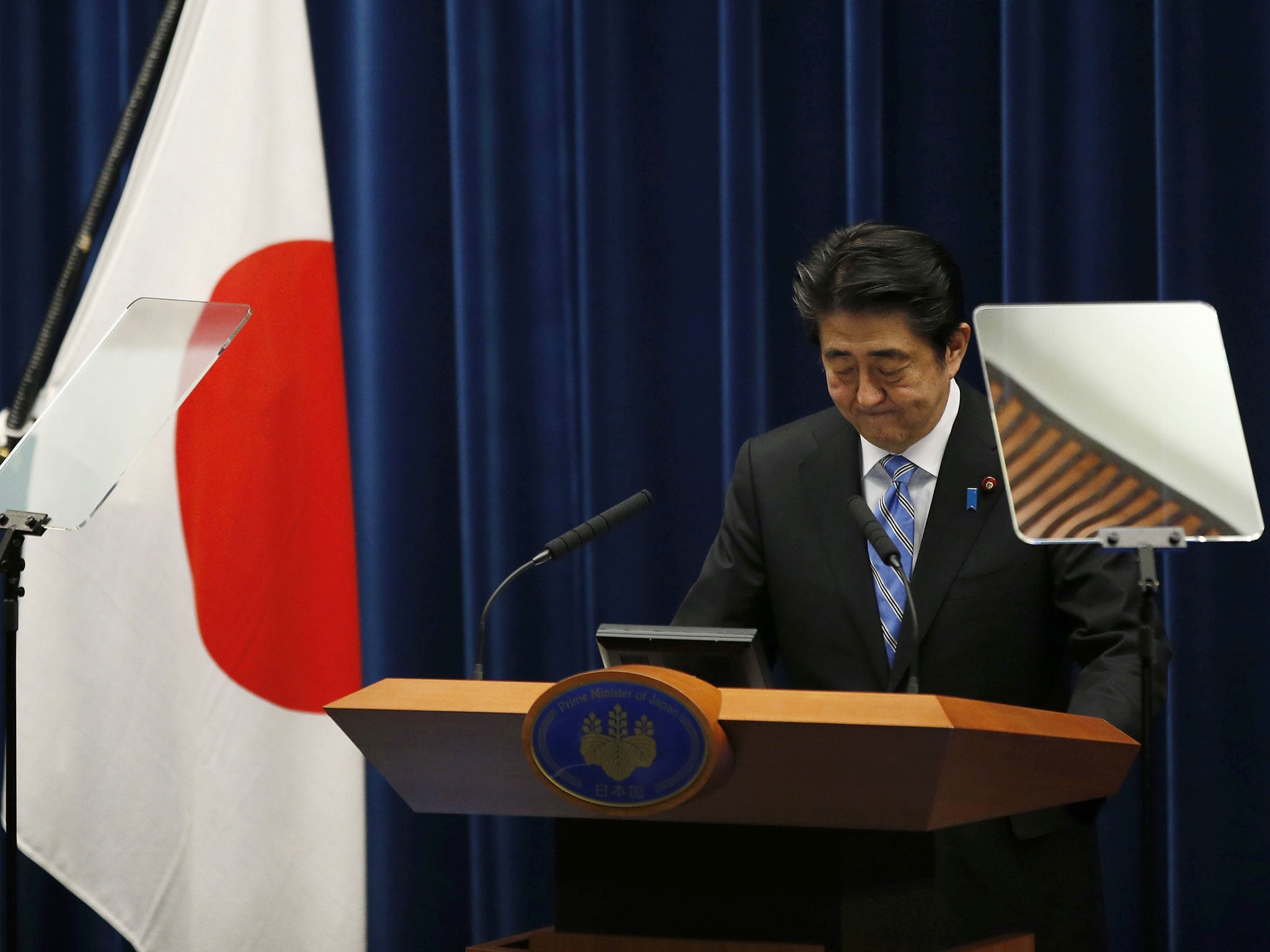Japanese PM Shinzo Abe calls snap election and dissolves parliament
An unpopular sales tax increase has also been postponed as the country scrambles to repair its economy

The Japanese Prime Minister Shinzo Abe has announced that he is dissolving parliament and calling a snap general election, giving in to pressure following the news that the world’s third-largest economy has fallen into recession.
Mr Abe also declared that a controversial increase in sales tax planned for next year will be postponed until 2017, as the Japanese government does all it can to get consumers spending again.
The news is an admittance of defeat for Mr Abe’s high-spending, high-taxing strategy designed to stimulate the Japanese economy back into growth.
Instead, he has determined that the figures since the last tax increase in April show the country is too weak to take any more.
Mr Abe said parliament will be dissolved on Friday, with an election scheduled for mid-December.
Fresh elections will be see Mr Abe seek a renewed public mandate for his all-or-nothing economic strategy. While it might seem bizarre to call for a vote following such bad news, the ruling Liberal Democrats have a solid majority and, with opposition parties in weak positions, it is one Mr Abe will expect to win.
When he was elected two years ago, Mr Abe declared "Japan is Back" - but that recession-busting optimism has long since faded.
Data released yesterday showed that the country's GDP unexpectedly shrank for the third quarter of 2014 by 1.6 per cent year-on-year. That put the country officially back into recession, and was described by Mr Abe's close adviser Professor Koichi Hamada as a "body blow".
By dissolving parliament for an election, Mr Abe can clear the slate and once again reshuffle his cabinet, said Michael Cucek, a Tokyo-based analyst and fellow at Temple University Japan. He described the sales tax hike and Abe's policy of lavish fiscal and monetary easing as "mutually contradictory economic programs."
Mr Abe is gambling that his decision will not undermine confidence in Japan's ability to finance its public debt - standing at more than twice the size of the economy.
At some point, Japan will have to raise taxes to cover its growing healthcare costs as an aging society.
"The Japanese government is doing a kind of Ponzi game," Hamada said. "Usually a Ponzi scheme doesn't work in the private economy, but the government always has the next generation of taxpayers to rely on," he said.
Additional reporting by AP
Subscribe to Independent Premium to bookmark this article
Want to bookmark your favourite articles and stories to read or reference later? Start your Independent Premium subscription today.

Join our commenting forum
Join thought-provoking conversations, follow other Independent readers and see their replies